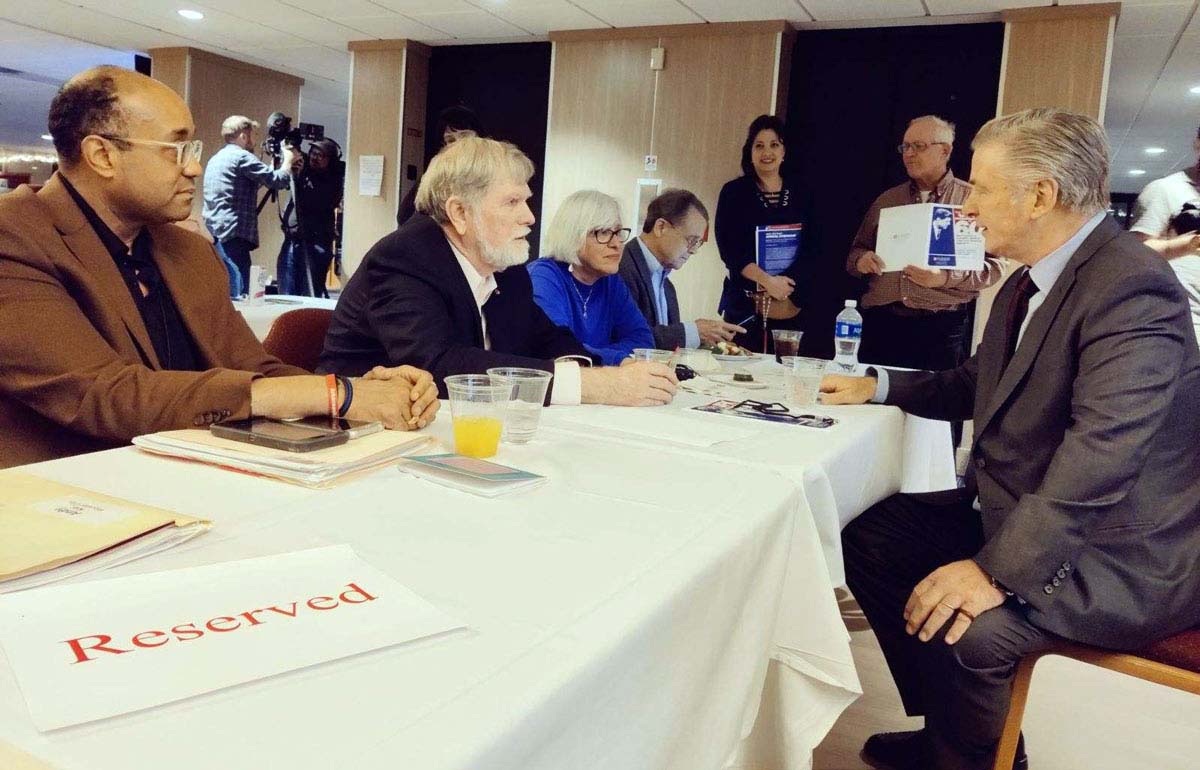Uncovering the mystery: Montague shares expertise at JFK assassination conference
January 1-7, 2024
By Angelita Faller
Even 60 years after the assassination of President John F. Kennedy Jr., one of the most well-known and studied events of American history continues to leave unanswered questions behind and remains a topic of intrigue for people all around the world.
Dr. David Montague, associate vice chancellor for academic affairs – student success at UA Little Rock, understands the continued fascination.
“There is no shortage of interest in this topic,” Montague said. “It’s interesting when you start thinking of the historical context of people tied to this assassination and that many of them may be gone the next time there is a significant anniversary. The symposium is one of the few times we’ve had a gathering of so many people who have a direct connection to the investigation of the assassination.”
Montague was one of many experts selected to speak at a symposium that brought together experts in law, journalism, forensics, medicine, physics, education, and many other topics to review the mystery of JFK’s assassination on the event’s 60th anniversary. Kennedy was assassinated Nov. 22, 1963, in a presidential motorcade in Dallas.
Many people do not know that this mild-mannered academic has a deep background in federal investigations and national security. He worked as the senior investigator for the U.S. Assassination Records Review Board (ARRB), a federal agency that investigated and collected records related to the JFK assassination, from 1995 to 1997. Montague thinks his team’s work with the review board was especially successful since people knew the information was being collected for the National Archives and reviewed for release to the public.
The symposium, “The JFK Assassination at 60: New Frontiers in Scientific, Medical, Legal, and Historical Research,” was held Nov. 15-17 by the Cyril H. Wecht Institute of Forensic Science and Law at Duquesne University.
The three-day, hybrid academic conference examined the forensic and cultural impact of the Kennedy assassination, with topics ranging from criminalistic analysis of events in Dealey Plaza to John Harvey Oswald’s intelligence connections.
During Montague’s Nov. 17 talk, “Lessons from the ARRB: The Value of Investigative Research from National Security,” he spoke about the importance of investigative research on the JFK assassination with respect to national security and the relevance of continued pursuit of disclosure of government records.
As head of the investigations division, he was authorized to identify, acquire, and declassify information and records pertaining to the JFK assassination. This work involved national security functions within intelligence and law enforcement, including interviewing hundreds of people connected to the assassination. To this day, many of the records that Montague worked on as part of the ARRB remain classified.
“What’s the rationale for holding on to my call report for tracking down someone who said they saw someone mutilate the president’s throat?” Montague said. “It was just someone’s statement to me. Why not release my report of my initial conversation with someone who was the spouse of the official White House photographer. For years, I kept saying to myself it’s because I provided someone’s personally identifiable information in the reports. Other than redacting that information out, I think the public would want to know the initial reactions of people who would reach out to the board. They want to know the truth. Here it is 2023, and there are still only a few of the things I worked on that have been released publicly.”
During the symposium, Montague said he was lucky enough to have a conversation with actor Alec Baldwin, who joined the symposium as a keynote speaker to discuss his experience working on a JFK 50th anniversary show for MSNBC that was never aired. According to Baldwin, the episode went against NBC’s policy of supporting the conclusions of the Warren Commission, which concluded that Oswald was the sole assassin.
One of the highlights of the conference for Montague was to hear the story of Paul Landis, a former Secret Service agent who was assigned to First Lady Jackie Kennedy and was in the vehicle behind Kennedy’s limo at the time of the assassination.
After 60 years of silence, Landis released a book this year detailing his time as a Secret Service agent. This includes an important piece of information that differs from the official version of the day Kennedy was killed. Landis says that he placed one of the bullets believed to have killed the president in his pocket before placing it on a hospital gurney.
“In 1963, he was a 28-year-old person on Jackie Kennedy’s security detail,” Montague recalled. “He talked about a controversial finding. He revealed important information about the bullet he found in the limousine and what he did with it. Some people question it as a serious chain of custody issue, but Mr. Landis just thought it was time to finally let people know the truth.”
After the symposium, Montague is especially grateful for the students who attended the lecture, feeling that such an event shows them the importance of receiving a college education and how it can be used to investigate important historic events.
“I’ve held the magic bullet and the rifle and seen the clothing the Kennedys wore that day,” Montague said. “There is still such an interest and an opportunity to carry the torch to find records and show young people why it’s important to have an education and why it’s relevant to the world around you.”
Photo Caption:
1. Dr. David Montague (left) meets with Actor Alec Baldwin (right) during a symposium commemorating the 60th anniversary of President John F. Kennedy’s assassination.



